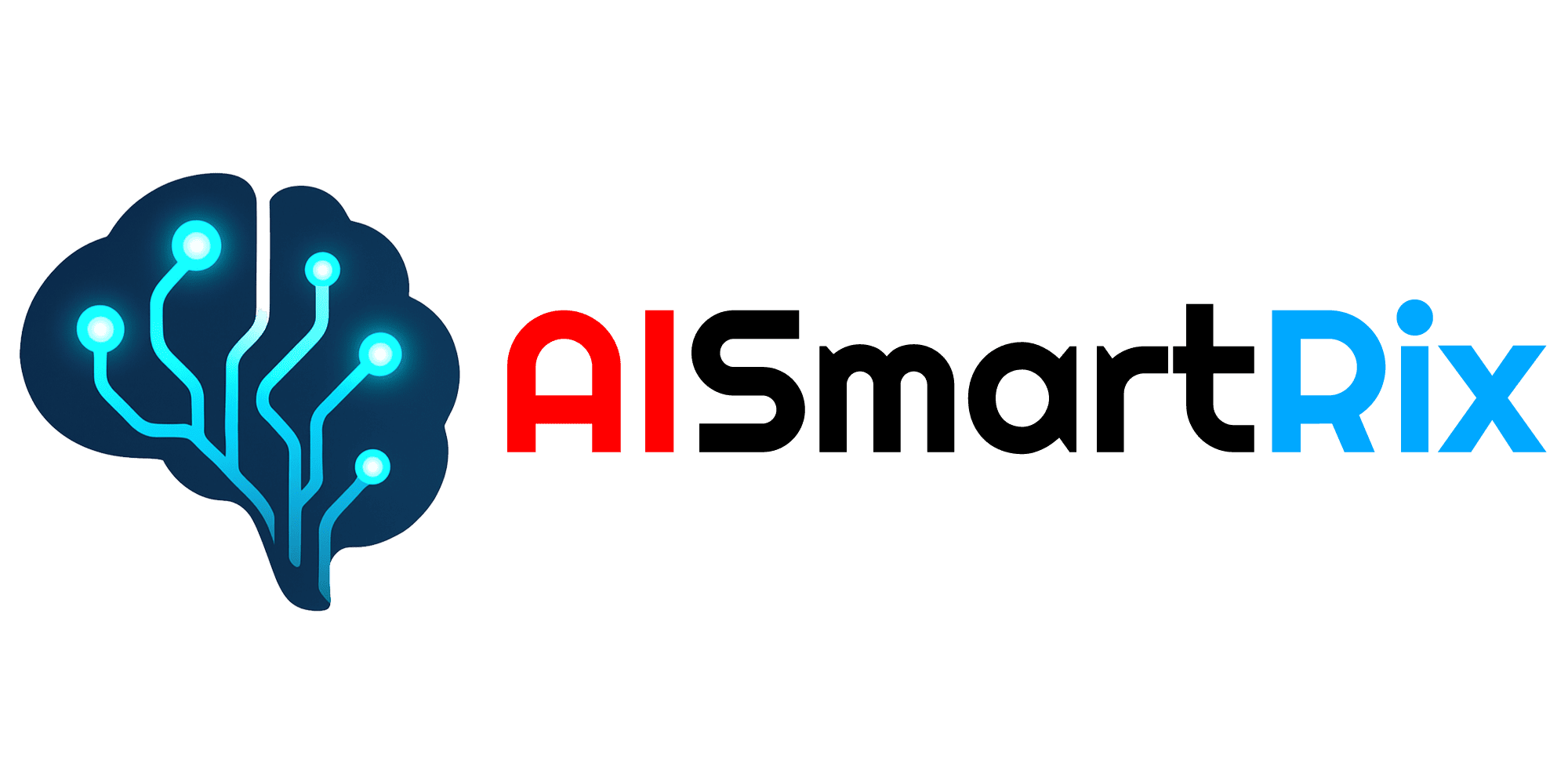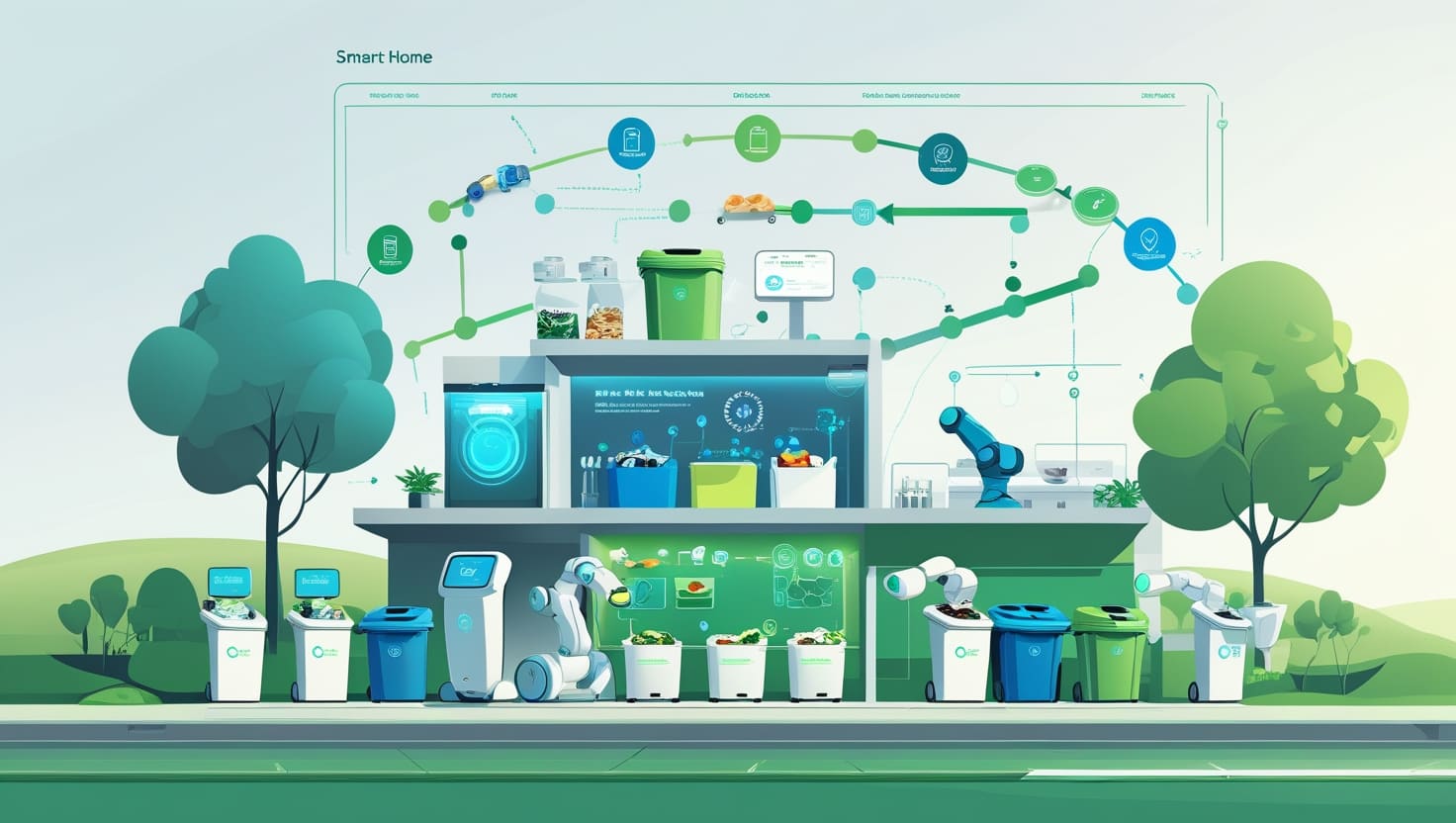In a world increasingly concerned with environmental sustainability, adopting a zero waste lifestyle has become a significant priority. As we step into 2025, artificial intelligence (AI) is playing a crucial role in making this lifestyle more achievable, practical, and scalable for both individuals and industries. This comprehensive guide explores how AI empowers us to reduce, reuse, and recycle with unprecedented efficiency, leading us toward a truly zero waste future.
1. Predictive Waste Management at Home
AI-powered smart bins and home waste tracking apps are revolutionizing how households manage their waste. These systems use image recognition and machine learning to analyze what is being thrown away, identify patterns, and suggest personalized solutions.
For example, if a household frequently discards certain food items, the AI can recommend optimized grocery shopping lists, portion sizes, and meal plans to prevent future waste. These systems can even alert users when perishable items are close to spoiling, encouraging timely consumption and reducing food spoilage significantly.
By learning personal consumption habits, AI empowers homeowners to make smarter purchasing decisions, dramatically reducing unnecessary waste.
2. AI-Powered Recycling and Smart Sorting
One of the most impactful applications of AI in zero waste is its ability to improve recycling accuracy. Traditional recycling systems often struggle with contamination and inefficiencies, but AI-driven sorting facilities use advanced computer vision, robotics, and deep learning algorithms to identify and separate different types of materials with exceptional precision.
AI-powered robotic arms can distinguish between plastics, metals, glass, and paper, ensuring that materials are properly sorted and recycled. This leads to higher recycling rates, better resource recovery, and less waste ending up in landfills.
In addition, many cities are adopting smart public recycling bins equipped with sensors and AI analysis. These bins can recognize items as they are deposited, provide real-time data on fill levels, and optimize collection routes for waste management companies, reducing fuel consumption and lowering carbon emissions.
3. Smarter Waste Collection and Logistics
AI doesn’t just help at the point of disposal; it transforms the entire waste collection process. Waste management companies now utilize AI-driven route optimization tools that analyze traffic conditions, fill-level sensors, and collection history to create dynamic, efficient collection routes.
This results in fewer unnecessary collection trips, reduced fuel consumption, and lower operational costs. In turn, it minimizes greenhouse gas emissions and extends the lifespan of collection vehicles by preventing overuse.
Furthermore, predictive maintenance powered by AI allows for early detection of potential vehicle failures. Sensors monitor vehicle health in real-time, enabling preemptive repairs that reduce breakdowns and extend vehicle longevity.
4. Circular Economy Enablement with AI
A zero waste future depends heavily on the circular economy, where products and materials are reused, refurbished, or recycled indefinitely. AI plays a central role in facilitating this model by improving supply chain transparency and product lifecycle tracking.
Smart systems can monitor materials from manufacturing through usage, collection, and recycling, ensuring they remain in circulation. AI can analyze data from sensors, QR codes, and blockchain systems to verify the origin, composition, and condition of materials throughout their lifecycle.
In manufacturing, AI-powered design platforms assist engineers in selecting eco-friendly, recyclable materials and designing products that are easier to disassemble and recycle. This leads to the creation of modular products that last longer and minimize end-of-life waste.
5. Upcycling and Personalized Consumer Guidance
AI is also making upcycling more accessible and appealing to the average consumer. Mobile apps powered by machine learning can suggest creative ways to repurpose household items that would otherwise be discarded. By simply scanning or uploading a photo of an item, users receive upcycling tutorials and project ideas tailored to their skills and available materials.
Additionally, AI can generate personalized recycling guides based on local regulations, ensuring users understand exactly how to dispose of each type of waste properly. This minimizes contamination in recycling streams and increases recycling effectiveness.
By empowering individuals with actionable knowledge, AI promotes behavioral changes that support zero waste living.
6. AI for Food Waste Reduction in Commercial Kitchens
In commercial kitchens, AI-powered systems are making significant strides in preventing food waste. Cameras, weight sensors, and AI algorithms monitor food preparation and consumption, identifying which ingredients are frequently wasted.
By analyzing this data, restaurants and catering services can adjust purchasing, preparation, and portion sizes to align more closely with actual consumption patterns. This not only reduces waste but also improves cost efficiency and sustainability in the food service industry.
For consumers, AI-driven apps offer daily notifications, recipe suggestions, and storage tips to ensure food is used before it spoils. These tools foster more conscious consumption habits and drastically reduce household food waste.
7. E-Waste Management and AI Robotics
Electronic waste presents a growing global challenge. AI-powered robots are being deployed to disassemble and sort electronic devices for recycling with incredible precision. These robots can identify components, separate hazardous materials, and recover valuable metals such as gold, silver, and copper.
By automating the e-waste dismantling process, AI increases recovery rates, reduces labor costs, and ensures that more electronic materials are safely reused or recycled, rather than ending up in landfills.
8. Community Engagement and Education
AI is also a powerful tool for educating communities and promoting collective action toward zero waste goals. Gamified sustainability apps challenge users to meet waste reduction goals, track progress, and compare achievements with friends or neighbors.
Municipalities can leverage AI simulations to model the potential impact of policy changes, recycling programs, or waste reduction initiatives. These simulations help decision-makers craft data-driven policies that maximize environmental benefits and economic efficiency.
By combining education, personalization, and friendly competition, AI fosters widespread engagement and long-term behavioral shifts toward a zero waste lifestyle.
Key Benefits of AI for Zero Waste Living
- Data-Driven Personalization: AI analyzes individual and community habits to offer tailored waste reduction strategies.
- Efficiency and Accuracy: Robotic sorting and predictive logistics maximize recycling rates and reduce operational costs.
- Consumer Empowerment: Apps and tools provide actionable insights, upcycling ideas, and food management assistance.
- Circular Economy Support: AI enables product design and material tracking that keep resources in circulation.
- Policy Optimization: AI simulations guide governments and organizations toward effective sustainability strategies.
- Economic Savings: Reduced waste equals lower costs for businesses, governments, and individuals.
Summary Table: AI Applications for Zero Waste
| Area | AI Application | Impact |
|---|---|---|
| Home Waste | Smart bins & apps | Personalized waste reduction |
| Recycling | AI sorting & robotics | Higher recycling rates |
| Logistics | Route optimization | Lower emissions & costs |
| Food Industry | Kitchen monitoring | Reduced food waste |
| E-Waste | Automated disassembly | Efficient material recovery |
| Education | Gamification apps | Community engagement |
| Policy | AI simulations | Informed decision-making |
Conclusion
Artificial intelligence is not just a futuristic concept; it is actively transforming how we approach waste reduction and sustainability in 2025. By making smarter decisions possible at every level—from individual households to global supply chains—AI is an essential ally in achieving a zero waste lifestyle. As more innovative solutions emerge, the path toward a cleaner, more sustainable world becomes increasingly attainable for all.
Why You Should Start Using AI for Zero Waste Today
Which AI solution do you think will make the biggest impact in reducing waste? Share your thoughts in the comments below!





